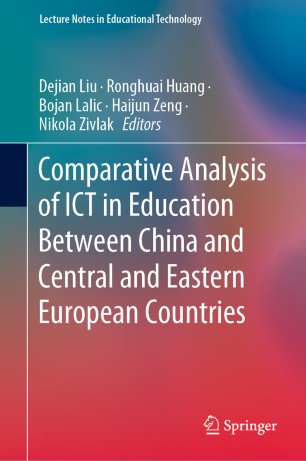

Most ebook files are in PDF format, so you can easily read them using various software such as Foxit Reader or directly on the Google Chrome browser.
Some ebook files are released by publishers in other formats such as .awz, .mobi, .epub, .fb2, etc. You may need to install specific software to read these formats on mobile/PC, such as Calibre.
Please read the tutorial at this link: https://ebookbell.com/faq
We offer FREE conversion to the popular formats you request; however, this may take some time. Therefore, right after payment, please email us, and we will try to provide the service as quickly as possible.
For some exceptional file formats or broken links (if any), please refrain from opening any disputes. Instead, email us first, and we will try to assist within a maximum of 6 hours.
EbookBell Team

0.0
0 reviewsThis book presents the status quo of Information and Communication Technology (ICT) in Education, with a focus on China and the 17 Central and Eastern European Countries (CEECs), including Albania, Bosnia and Herzegovina, Bulgaria, Croatia, the Czech Republic, Estonia, Greece, Hungary, Latvia, Lithuania, Macedonia, Montenegro, Poland, Romania, Serbia, Slovakia and Slovenia (the “17+1” cooperation mechanism, as an incubator for pragmatic trans-regions cooperation platform, created by China and the 17 CEECs). With recent advances in ICT in China and the CEECs, it has assumed increasingly important roles in education, including the improvement of the quality of teaching and learning, as well as the promotion of equity in education. The significant contribution of ICT in education is an enabler to achieving the goals of the “17+1 cooperation” mechanism between China and the CEECs, which has attracted considerable attention worldwide, given fresh impetus to cooperation between the two parties, and opened a new chapter in China-CEEC cooperation.
The contributors, all of whom hail from these 18 countries, describe the state-of-the-art of ICT in education in their respective country, and focus on three major aspects, namely: the country profile, general status of education development, and ICT in education. In turn, leading experts in educational informatization research compare the situations in different countries. Taken together, the papers offer valuable insights for policymakers and educators on how to integrate ICT into educational processes, and on inter-regional cooperation with regard to ICT in education.